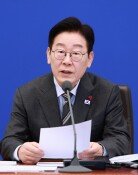[Opinion] If the `Structural Reform Law` Is to Survive
[Opinion] If the `Structural Reform Law` Is to Survive
Posted August. 28, 2001 08:26,
The paradoxical logic of operation in a capitalist economy dictates that the only way to reduce insolvency is to follow the law of the market,a shaky economy produces insolvency. The West, birth place of capitalism and Christianity, has a saying that goes, `Capitalism without insolvency is like Christianity without hell`. Hence, an insolvency system that takes care of weakened businesses plays a central role in maintaining a capitalist economy. In the case of Korea, there was no urgent need for an effective insolvency system during the economic boom, but as the boom came to an end, Korea suddenly faced an economic crisis. Although many weakened businesses required prompt action, the series of legal statues on insolvency such as bankruptcy, liquidation, composition, and legal management were unfortunately much too inadequate. There were attempts to initiate a private business workout project on the fringes of insolvency laws, but these mostly ended in failure. As a result, 140 billion won has already been invested in public funds and despite the talk of `IMF graduation`, the real serious corporation structural adjustment is just beginning.
The `enterprise structural adjustment promotion law` (hereafter promotion law) which passed in the National Assembly in July and will go into effect in September, originated in this context. The `corporation regulation law` (hereafter regulation law), which addresses weakened businesses, handles businesses that are already bankrupt through the court system. The promotion law, on the other hand, handles large businesses showing signs of trouble in cooperation with creditor organizations. The law propels businesses to pursue rigorous structural adjustment by providing conditions such as the creditor finance organizations extending expiration dates, reduction of principle and interest, investment conversion, and making new investments, creating a framework that entails mutual management.
The success or failure of the law will have an enormous influence on the success or failure of the Korean economy`s pending structural adjustment. Yet, one can infer from the fact that the law comes after four years of criticism that there will be many obstacles for the enforcement of the law. The main challenge for the promotion law is the problem confronting every insolvency system – free riding.
There are two kinds of free riding which some creditor will attempt. The first is the attempt to escape credit freezing which most creditors use to prevent the value of businesses from falling due to the creditors` stiff competition for credit circulation. The second is the attempt to avoid the inevitable sacrifices which follow from mutual management and watch for the other party`s profits. Under the regulation law, the courts freeze all the credit since weakened businesses fall within the legal jurisdiction and provide a way to stop free riding at the root. While a minority of creditors opposed such regulation plans, they followed the position of the majority in the end.
On the other hand, the promotion law, which handles weakening businesses under the prudence of credit finance organizations, makes the decision for credit circulation extension by securing the agreement of 75 percent of the credit organizations. Furthermore, the credit of the 25 percent minority creditors who oppose cooperative management is sold to the majority creditors. In the case that they cannot reach an agreement on the sale price, a regulation committee comprised of seven experts will make the decision.
While the cooperative management with self-regulating creditors under the promotion law is more flexible and efficient in handling weakened businesses than the court-controlled regulation law, it is weaker in dealing with the free riding problem of the credit finance organizations. One cannot blame free riders in a capitalist economy. Yet, the free rider harms what is in the common interest of the entire credit organization and thereby invites harm to himself. Therefore, creating the condition for exercising self-restraint in free riding is very important. The heart of that condition is trust.
There are many who are involved in the major corporation issues and structural adjustment process, the share credit banks who oversee the cooperative management, the regulation committee who controls the opposition of the credit finance organizations, the Financial Supervisory Service who necessarily participates even if this is not its formal jurisdiction, the governmental administration who owns the majority of banks accommodated to the state, and other central persons. These organizations and persons who are centrally involved must exercise sensible judgment and make trustworthy decisions in order to successfully make business structural adjustments through the promotion law.
Park Sang Yong (Professor of Economics, Yonsei University)





![“한동훈, 정치생명 걸고 무소속 출마해 평가받는 것 고려할만”[정치를 부탁해]](https://dimg.donga.com/c/138/175/90/1/wps/NEWS/IMAGE/2026/01/19/133186982.1.jpg)

